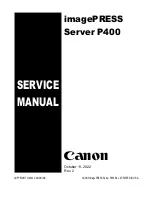
47
Proprietary Information: Not for use or disclosure except by written agreement with Calix.
© 2001-2007 Calix. All Rights Reserved.
2nd and 3rd Segments (Expansion Modules)
Port 2-4 (UVG)*
On:
Not applicable - this LED not functional in this
release.
Off:
Not applicable - this LED not functional in this
release.
Port 1-4 (T1)
On:
Port is provisioned and running.
Off:
The port is not provisioned.
Port 1-4 (Quad
Video)
On:
Port is provisioned and running.
Off:
The port is not provisioned.
4th Segment (Ethernet Data)
Port 1-4
On:
Ethernet data is connected to the appropriate port.
Off:
No data transmission is possible (No IP, no
handshake).
* The LED in the Port 1 position indicates the status of any of the UVG ports
(4 or 8, depending on module installed). LED Ports 2-4 are not used in this
configuration (no LED is installed on the card).
A Word about Troubleshooting
Troubleshooting a communications device is simple if you keep the following basic
principles in mind:
y
Anytime you have a random or intermittent problem, it is best to consider the simplest
solutions first. Often, a loose connection can cause intermittent failures.
y
The ONT processes three discrete signals - Voice, Data and Video. A failure of any of
these signals at the headend will result in a loss of service to a cluster of subscribers, not
just four. Conversely, communications problems that affect only four subscribers most
always involve troubleshooting at the ONT, not the headend.
y
If there are no visible indications of trouble at the ONT (for example, LEDs showing the
normal status), the problem is probably at the Central Office.
y
The CMS Software which monitors the status of every ONT in the system has
considerable diagnostic ability. Monitoring the operation of the ONT via this software
will often lead you directly to the root cause.














































